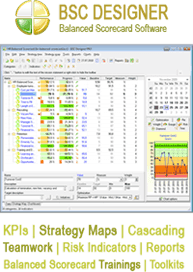Things to consider in Metrics Company Analysis
Balanced scorecards, KPIs, and metrics – these are just some of the more popular tools that help management measure the efficiency of the operation of businesses. While balanced scorecards and KPIs are more general in nature since they encompass all aspects of any business, metrics are more specific and can be just a part of the overall scheme of measuring efficiency. Different metrics can be devised for different areas that need effective measurement, such as employee performance, employee satisfaction, customer satisfaction, productivity, and others. Metrics express measurements in numerical terms and thus, their formulation needs the services of one who is highly skilled not only in statistics, but also in determining what data are relevant and should be gathered for preparing a fairly accurate metrics. The main benefit of metrics is that they are easy to use. Once the formula is established, data gathered can easily be interpreted and since interpretation is through numbers, managers can see at once if there is a problem, where exactly the problem is, and then act accordingly. Accuracy of metrics is, of course, crucial and because of this, metrics company analysis should be conducted from time to time.
To some companies, metrics are the primary measures of efficiency. Call centers, for example, can do well with cost per call metrics and perhaps another to determine whether they are doing good or not. This does not mean that the installed metrics need not be evaluated from time to time since changes in the business climate, client contracts, in the skills of employees, or change in communications equipment can easily result to inaccuracy in the cost per call metrics. Another type of metrics is perhaps applicable.
In big companies where there are more varied activities, setting up the appropriate metrics can be quite complicated. First of all, there could be several metrics employed and managers must make sure that these metrics are carefully synchronized to avoid conflicting results. This is also where what data or areas to include in the formulation of metrics should be diligently considered as logically, there are many factors that are interrelated with one another. And a wrong choice can result to unreliable metrics. It would be quite puzzling to come up with time utility metric results that are favorable while employee performance metrics point to the opposite direction, or a sales metric result that is quite good while customer satisfaction is at a low point. Something must be wrong in the metrics themselves.
All these infer that even the choice of the kind of metrics to employ and the number must be subject to thorough analysis. It will definitely not do to employ so many when it could only lead to confusion besides waste of valuable time. It will be more advantageous to have just a few that are accurate and easily understood.
When nobody in the company is skilled in the analysis of metrics, the services of experts should be acquired. There are many metrics available but one will be ill-advised to implement them without making sure of their applicability to the company’s peculiar conditions. Even in cases where a company is introducing metrics for the first time, it is advisable to conduct metrics company analysis.
—
If you are interested in metrics company analysis, check this web-site to learn more about roi company scorecard.


